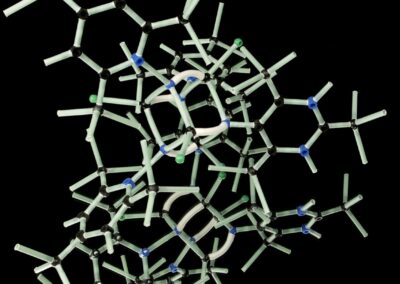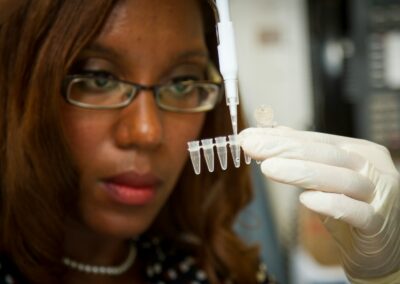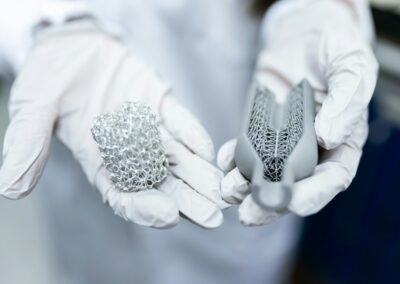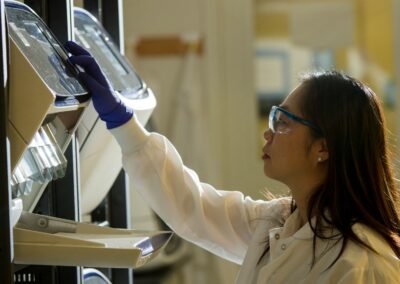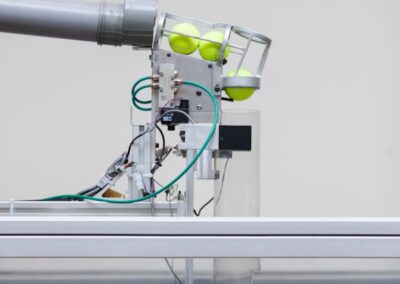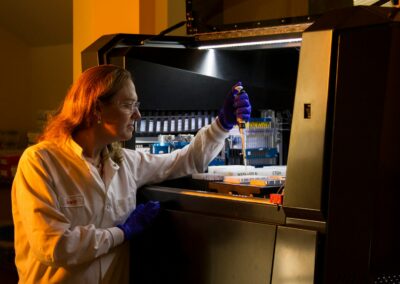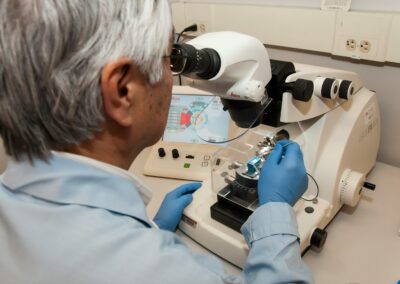Ethical Guidelines for Responsible Genetic Innovation
Exploring the Benefits of Genetic Engineering for Human Enhancement
The advent of genetic engineering for human enhancement has ushered in a new era of possibilities in biotechnology. Leveraging technologies such as CRISPR-Cas9, scientists can now modify the human genome with unprecedented precision. This capability holds immense potential for improving human health, eliminating genetic disorders, and enhancing physical and cognitive abilities. In regions like Saudi Arabia and the UAE, where technological innovation is integral to economic and social development, the benefits of genetic engineering are particularly significant.
Saudi Arabia’s Vision 2030 aims to diversify the nation’s economy by fostering advancements in high-tech industries, including biotechnology. Genetic engineering offers the promise of eradicating hereditary diseases, thereby improving the quality of life for millions. For instance, conditions like cystic fibrosis and sickle cell anemia could potentially be cured through targeted gene editing. This would not only reduce healthcare costs but also enhance the overall health and productivity of the population.
The UAE, with its strategic focus on becoming a global hub for innovation, is also investing heavily in genetic research. Dubai’s biotech initiatives are exploring ways to use genetic engineering to enhance human capabilities, from boosting immunity to increasing intelligence and physical strength. These enhancements could lead to a more resilient and capable workforce, driving economic growth and positioning the UAE as a leader in cutting-edge technology. However, as we embrace these benefits, it is crucial to consider the associated risks and ethical implications.
Identifying and Mitigating the Risks of Genetic Engineering
While the potential benefits of genetic engineering for human enhancement are compelling, the risks must be carefully managed to avoid unintended consequences. One of the primary concerns is the ethical dilemma of “playing God” by altering human genetics. This raises questions about the natural order and the long-term impact on human evolution. In Saudi Arabia and the UAE, where cultural and religious values play a significant role, these concerns must be addressed through thoughtful ethical guidelines.
Another significant risk is the potential for social inequality. Genetic enhancements may become accessible only to the wealthy, leading to a societal divide where the enhanced have significant advantages over the non-enhanced. This could exacerbate existing social and economic disparities, creating a class of genetically privileged individuals. To mitigate this risk, policies must ensure that genetic enhancements are accessible to all segments of society, promoting equity and inclusion.
The possibility of unintended genetic mutations is another critical risk. While technologies like CRISPR-Cas9 are precise, they are not infallible. Off-target effects and unintended consequences could lead to new health issues or genetic disorders. Rigorous testing and long-term studies are essential to understand and mitigate these risks. Regulatory bodies in Riyadh and Dubai must establish stringent safety protocols and continuous monitoring to ensure the responsible application of genetic engineering.
Establishing Ethical Guidelines for Genetic Engineering
To balance the benefits and risks of genetic engineering for human enhancement, comprehensive ethical guidelines are imperative. These guidelines should be developed through a collaborative approach involving scientists, ethicists, policymakers, and the public. In Saudi Arabia, the establishment of the National Committee of Bioethics (NCBE) provides a framework for overseeing genetic research and ensuring compliance with ethical standards. The NCBE can play a pivotal role in developing policies that promote responsible genetic innovation while safeguarding public interests.
In the UAE, ethical guidelines for genetic engineering should be integrated into national strategies for innovation. Dubai’s leadership in biotechnology can be enhanced by adopting international best practices and aligning them with local values. Public engagement is crucial to this process. By involving citizens in discussions about the ethical implications of genetic engineering, policymakers can build public trust and ensure that genetic advancements reflect societal values and priorities.
Education and awareness are also essential components of ethical guidelines. Universities and research institutions in Riyadh and Dubai can incorporate bioethics into their curricula, preparing future scientists to navigate the ethical challenges of genetic engineering. Training programs can focus on the principles of informed consent, privacy, and the social implications of genetic enhancements. By fostering a culture of ethical responsibility, these regions can lead the way in developing a balanced approach to genetic innovation.
Conclusion
The potential benefits and risks of genetic engineering for human enhancement are profound and multifaceted. By implementing robust ethical guidelines, Saudi Arabia and the UAE can harness the power of genetic technology to improve human health and capabilities while mitigating the associated risks. Through collaborative efforts, public engagement, and a commitment to ethical practices, these nations can ensure that their advancements in genetic engineering contribute to a future that is equitable, inclusive, and respectful of human dignity.
#GeneticEngineeringForHumanEnhancement #GeneticEthics #BenefitsOfGeneticEngineering #RisksOfGeneticEngineering #SaudiArabiaBiotech #UAEBiotechInitiatives #RiyadhGeneticResearch #DubaiBiotechAdvancements #AIInGenetics #BlockchainInGenetics #TheMetaverseInGenetics #GenerativeAIInGenetics #BusinessEthics #LeadershipInBiotech #ManagementInGeneticResearch #ProjectManagementInBiotechnology



